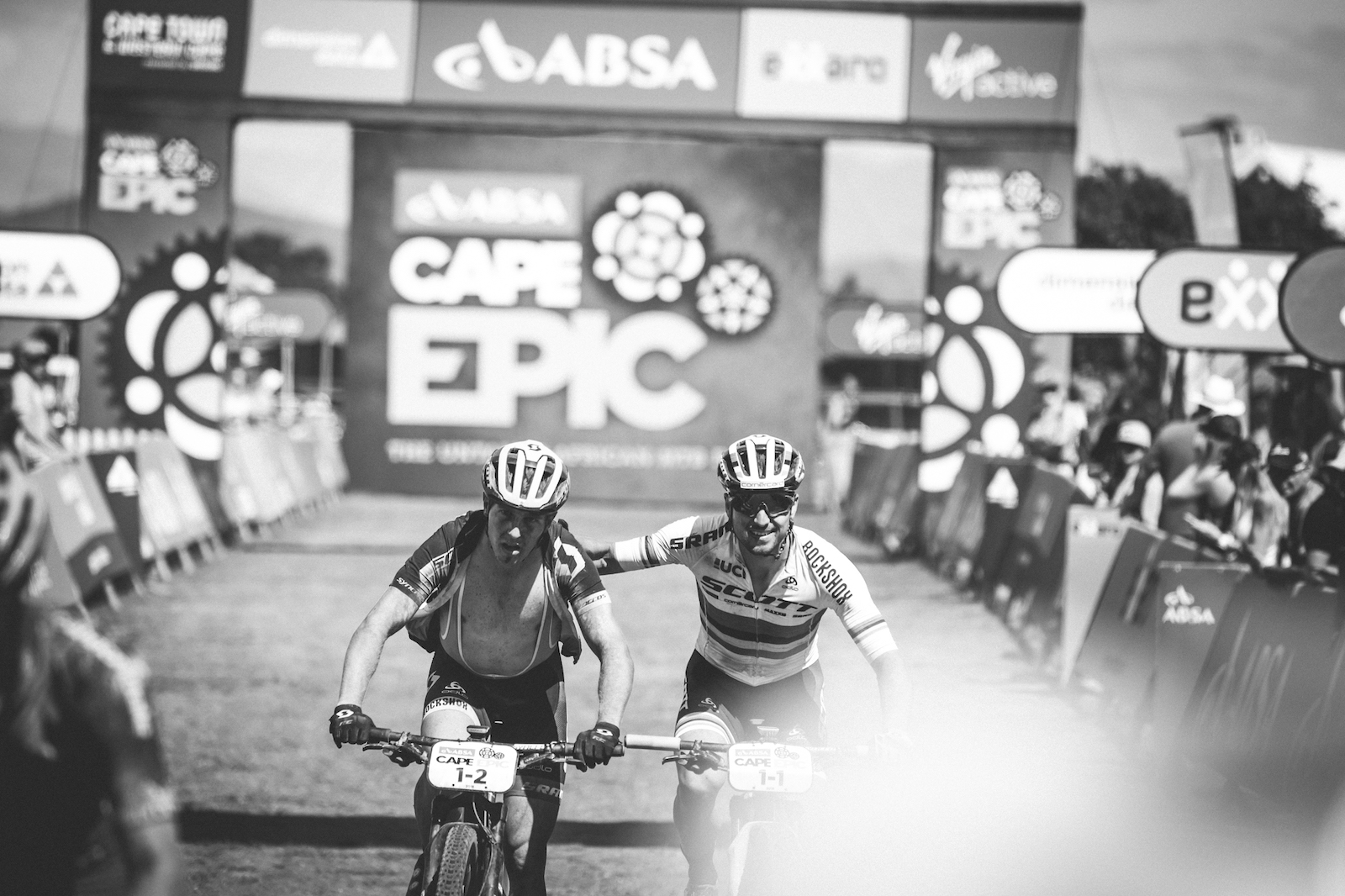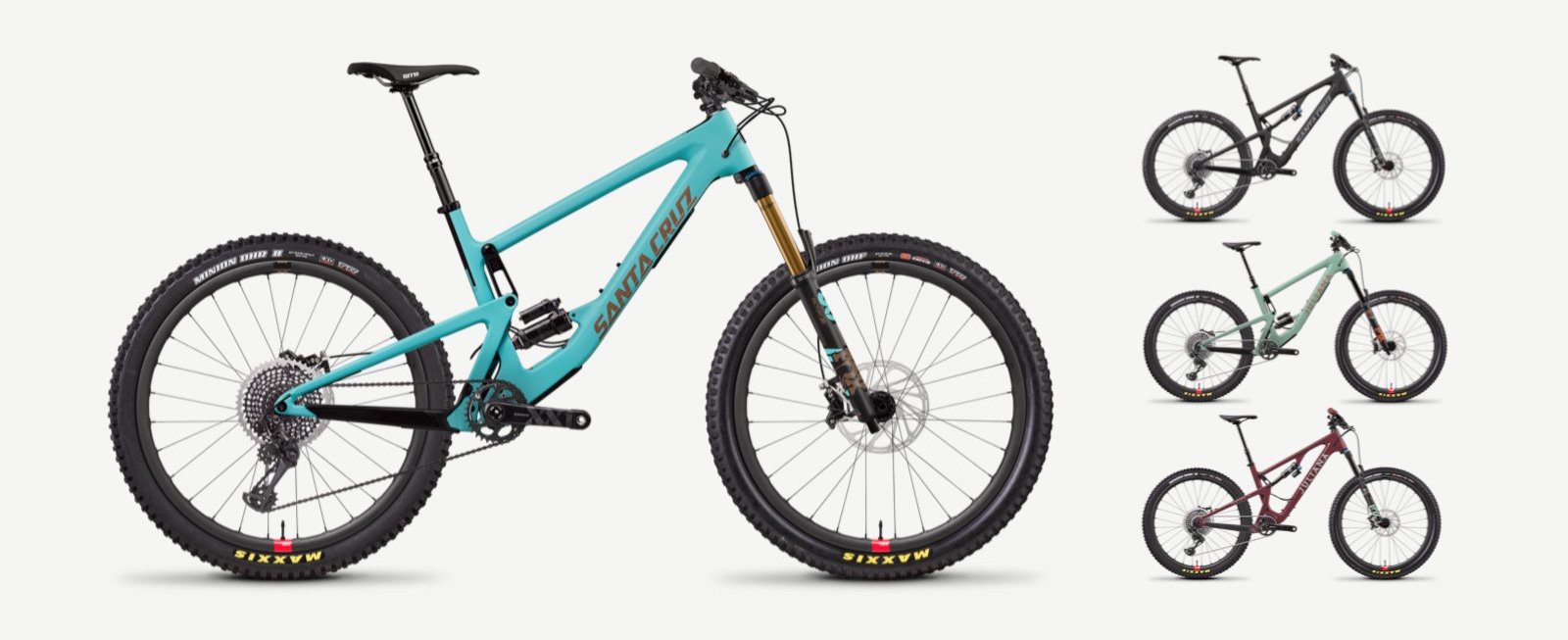Part 1 — Nino
Imagine for a second that you own an Olympic Gold Medal, a small collection of world championship jerseys, and that you’ve just come off of the perfect season in which you won every single World Cup and another UCI Cross Country World Championship. You’re a beast. You know it, your sponsors know it, your competitors know it — and even the fans that’d love to see you lose know it.
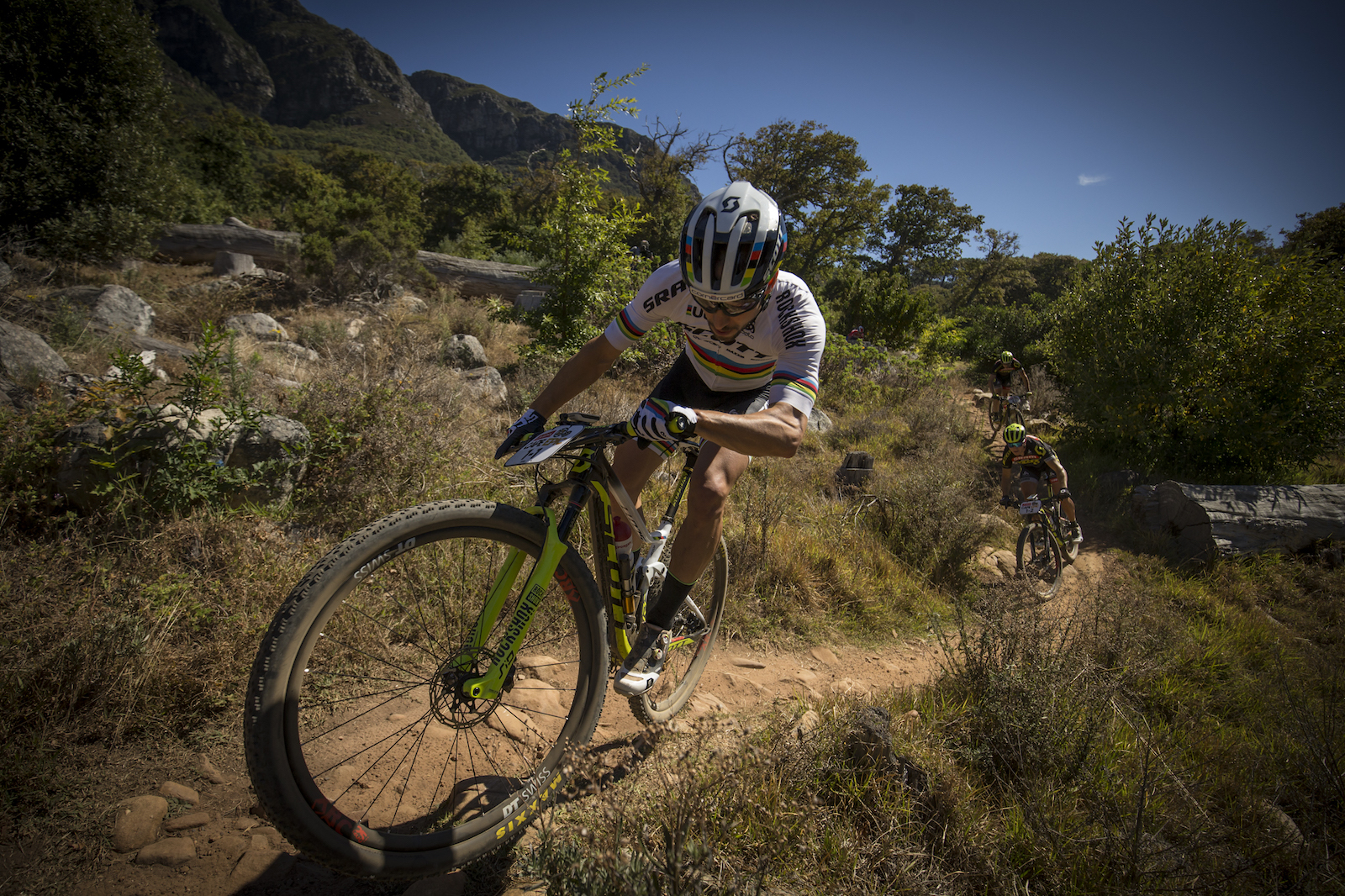
You’re a machine, wholly dedicated to winning mountain bike races. You spend most of your year in the northern hemisphere, but, like surfers chasing the endless summer, you head to the southern hemisphere, South Africa, to chase warmer weather in the off-season.
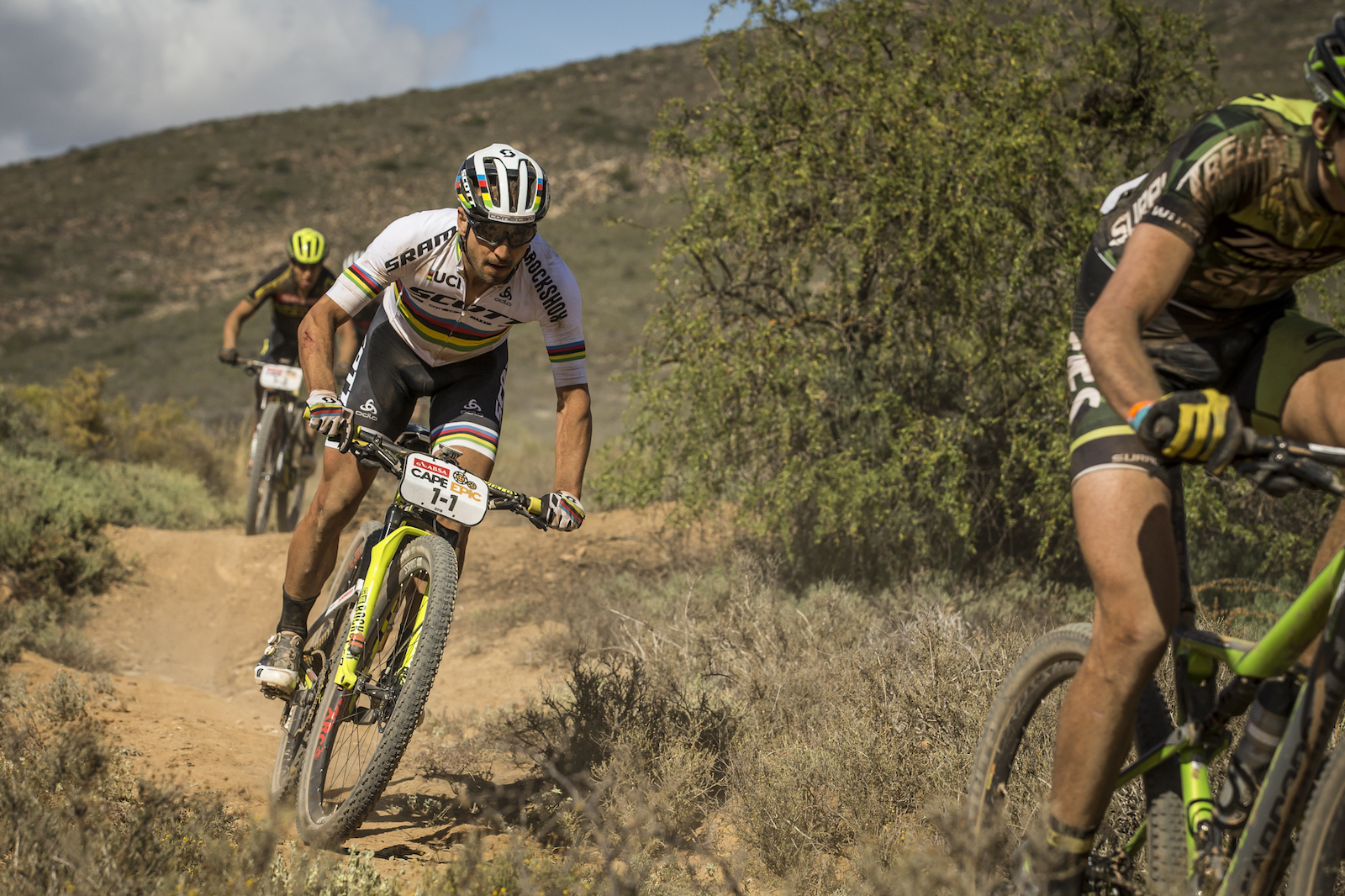
You make the town of Stellenbosch your second home. You have a bike shop there. When the 2018 World Cup XC opener comes to Stellenbosch, it feels like it is your home race. And a racer worth even a fraction of their bike’s retail price wants to perform well in front of the home crowd.
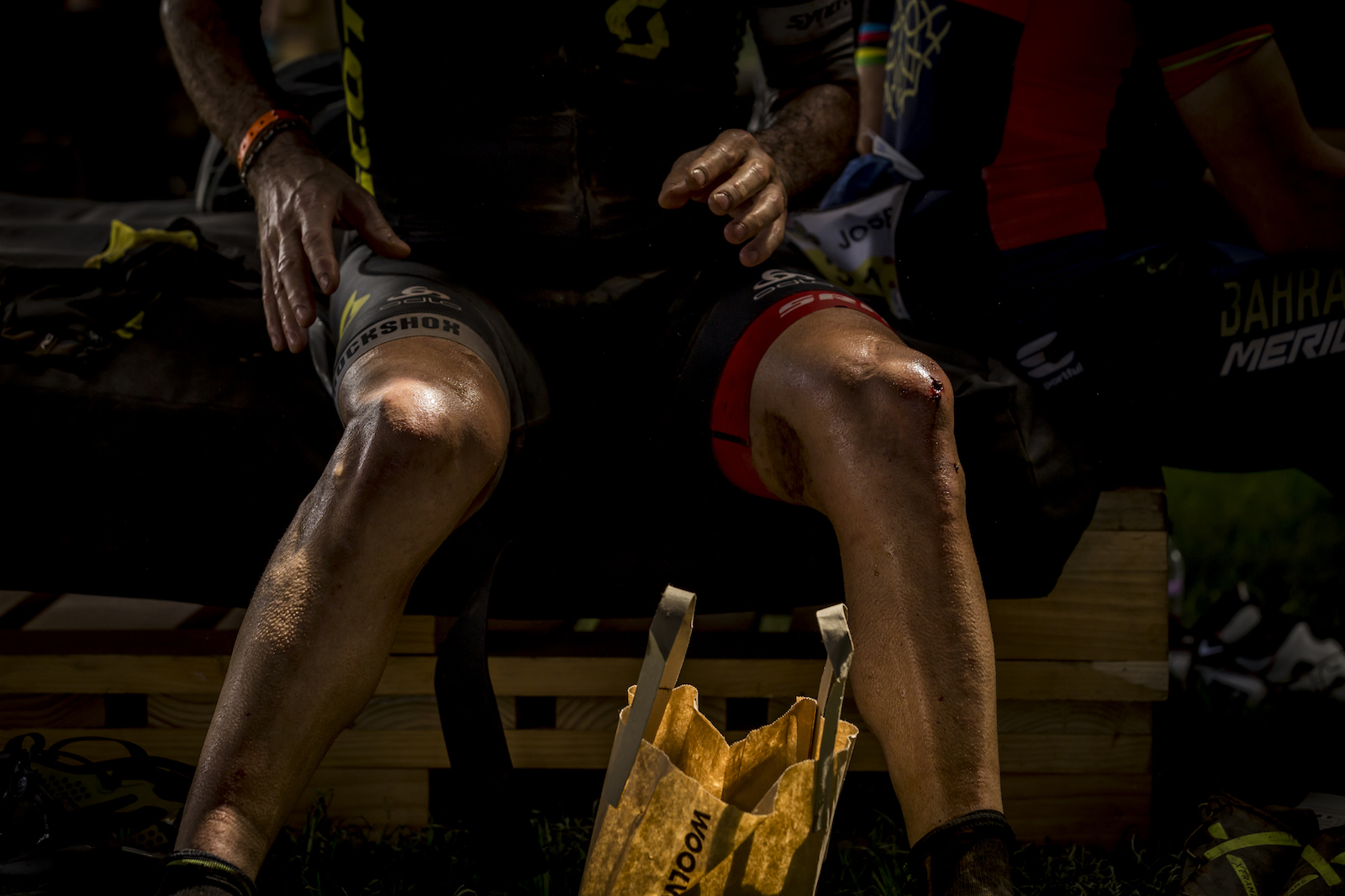
You’re a beast, a machine, a study in preparation — this has been evident since you first started cycling. But even you can make a mistake. And there, in front of your second-home crowd, you do. It’s not what the forum experts will talk about immediately following your loss. Nope. It is something infinitely subtler than a slipped pedal or when you started your sprint, but the resulting loss — your first World Cup defeat in more than a year — is just as painful.
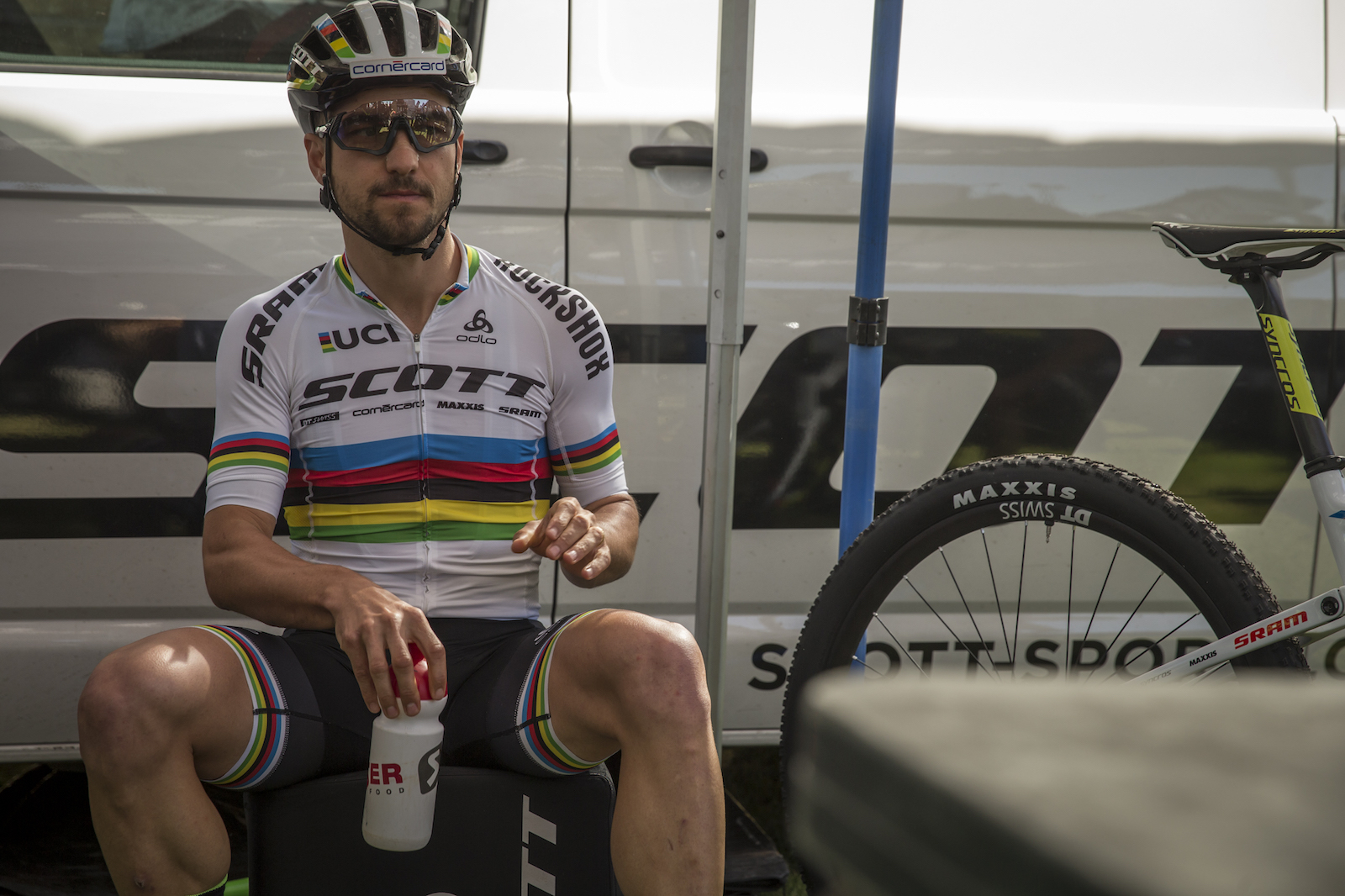
But you knew it would happen eventually, and so you lick your figurative wounds and get ready for the next race.
Just a few kilometers and a handful of days down the road from Stellenbosch, the start of the Absa Cape Epic awaits. You’re the defending champion. Co-champion is perhaps more precise, since this is a stage race in which teams of two must start and finish together.
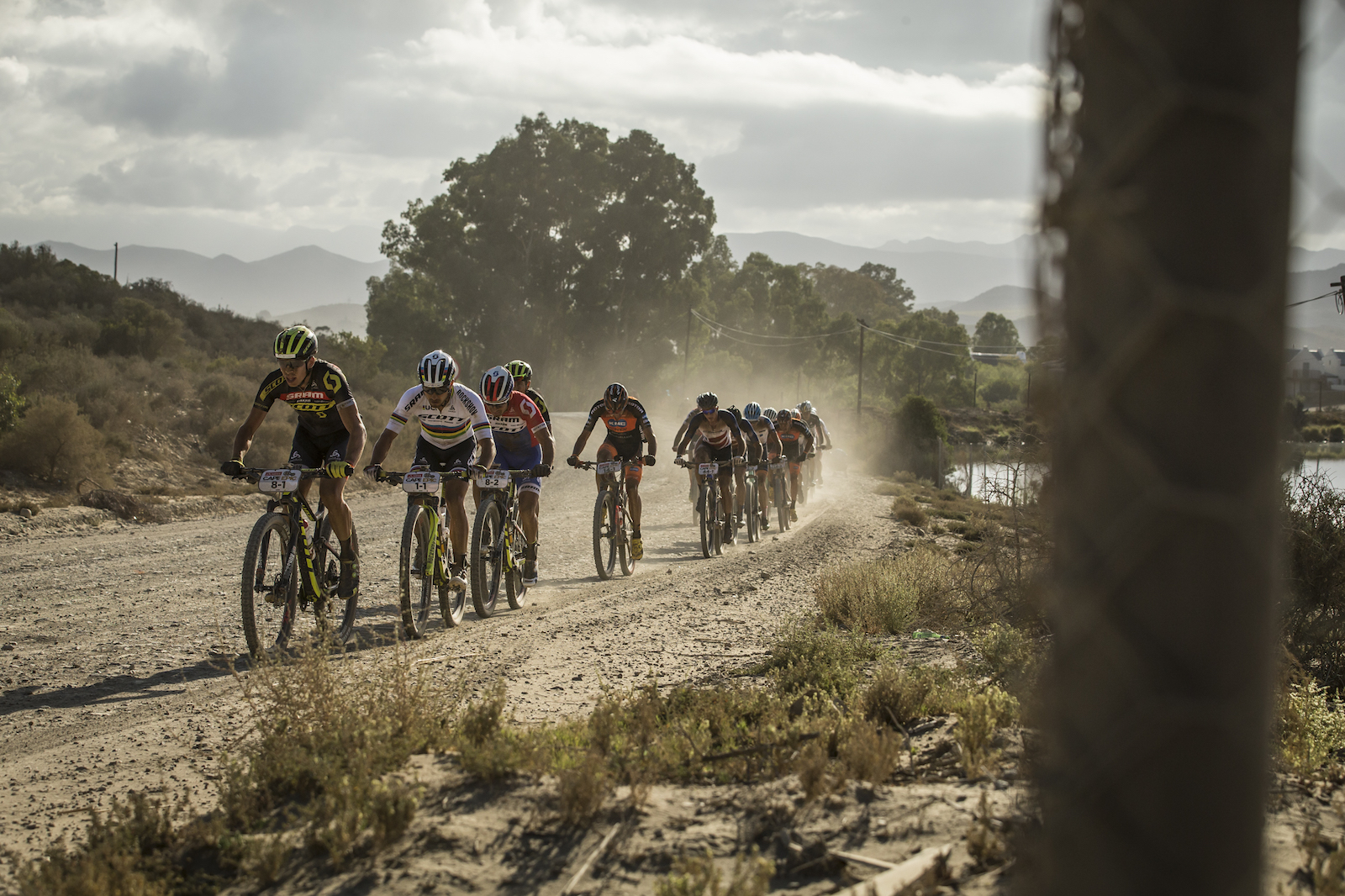
Your co-defending champ partner is your Scott-SRAM teammate Matthias Stirnemann, who managed to get the better of you already this year in a race back home in Switzerland. Together, you’re favorites for a repeat victory. But, already in the Prologue Time Trial, your teammate can’t find the power to keep pace with you. You lose time. And while you know that something is amiss, you hold on to the hope that the eight-day length of the Cape Epic will swing the odds back to your favor. But it isn’t going to happen this year.
Stirnemann is barely able to finish Stage 1. You push him, ghost white and barely able to stand, across the finish line as a gesture of solidarity — and he is taken to the hospital.
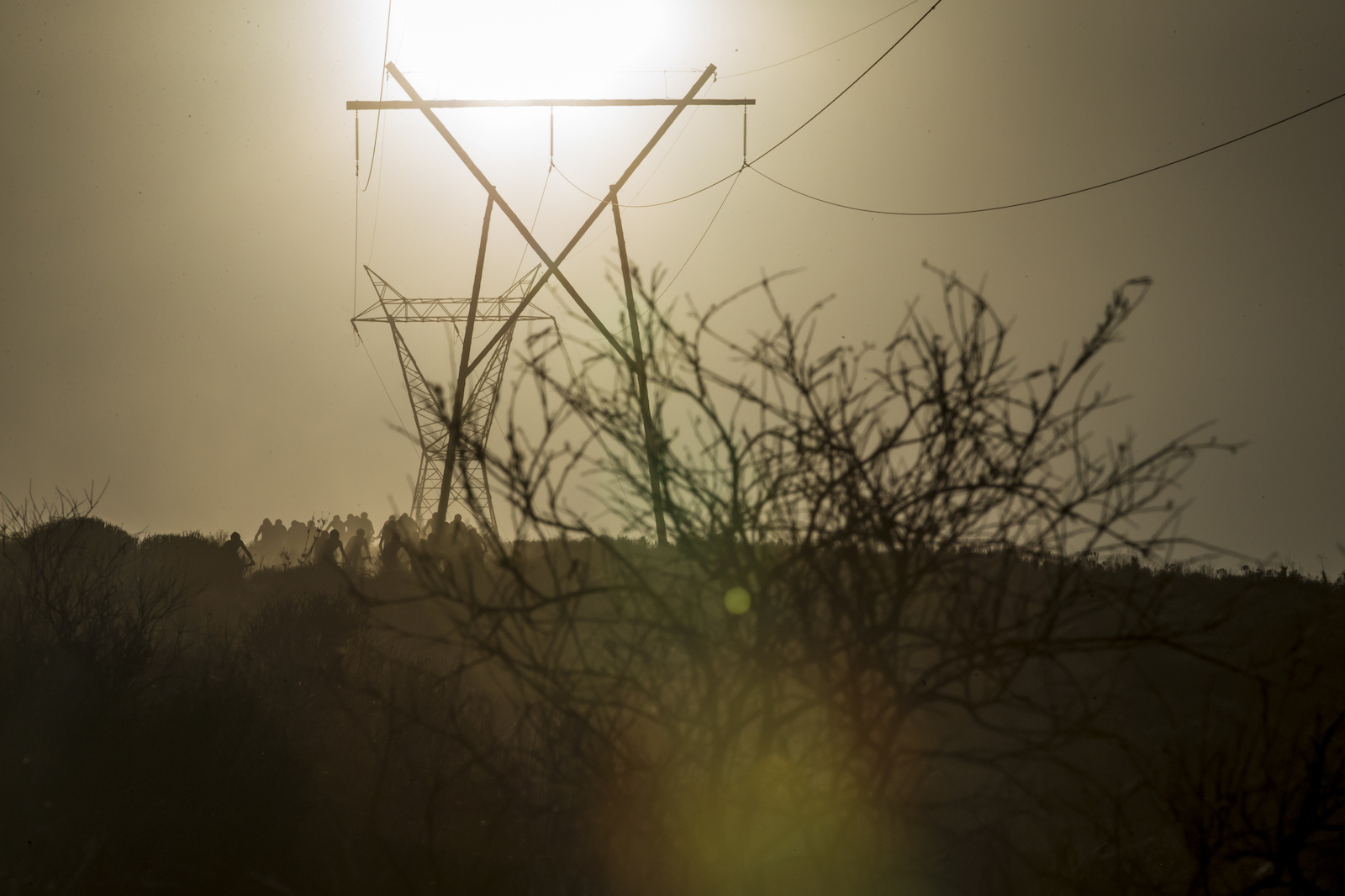
Ultimately, it comes down to this one simple fact, one that is perhaps unimaginable to anyone but another world-class racer: You’re not here for your health. You’re here to win a bike race or pretty much die trying — and you can’t do either now. And so you sling a leg over your bike and head home to prepare for the rest of the World Cup season.
Part 2 — Young Guns
Imagine for a second that you are a competitor at the pinnacle of cross-country mountain bike racing, the UCI World Cup. You’re young. You’re not the kind of young that absolves you from any sort of real expectation, but rather the kind of young that has already proven things but still has big potential for years of bright competition future.
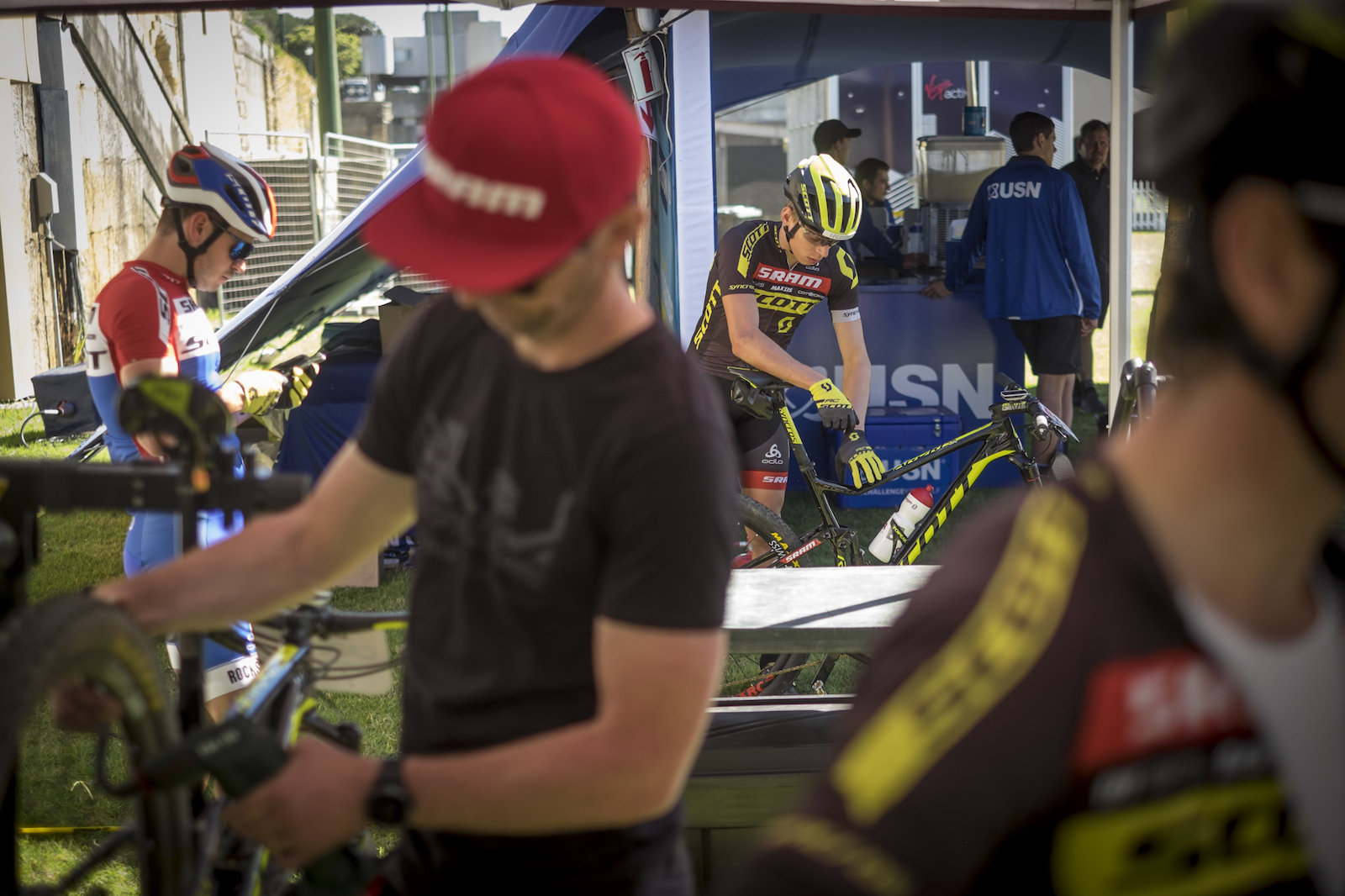
It’s important to understand this part, because this kind of young possesses the knowledge to understand what the body is doing, the wisdom to know that pragmatism is not the same thing as laziness, but yet the blind faith that everything is going to go well despite signs to the contrary.
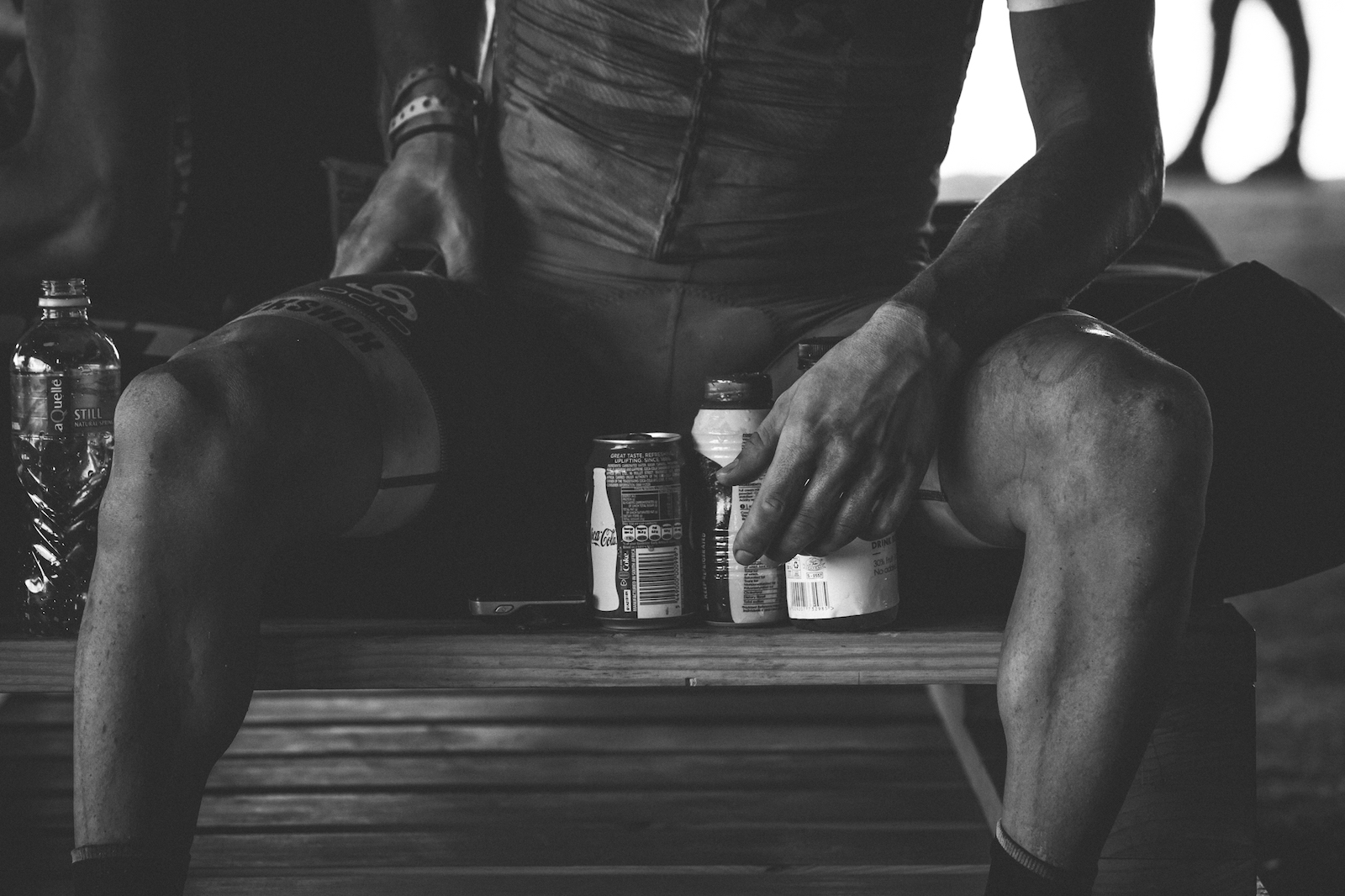
If you’re Scott–SRAM Young Guns Michiel Van der Heyden and Andri Frischknecht you are that kind of young. And, going into the 2018 Cape Epic, you’re riding pretty well. It’s not the kind of ‘well’ that would’ve made you race favorites, but rather the kind of ‘well’ that could’ve delivered a stage win like you had in the 2017 event. And certainly you’re riding well enough to help your defending champion teammates Schurter and Stirnemann.
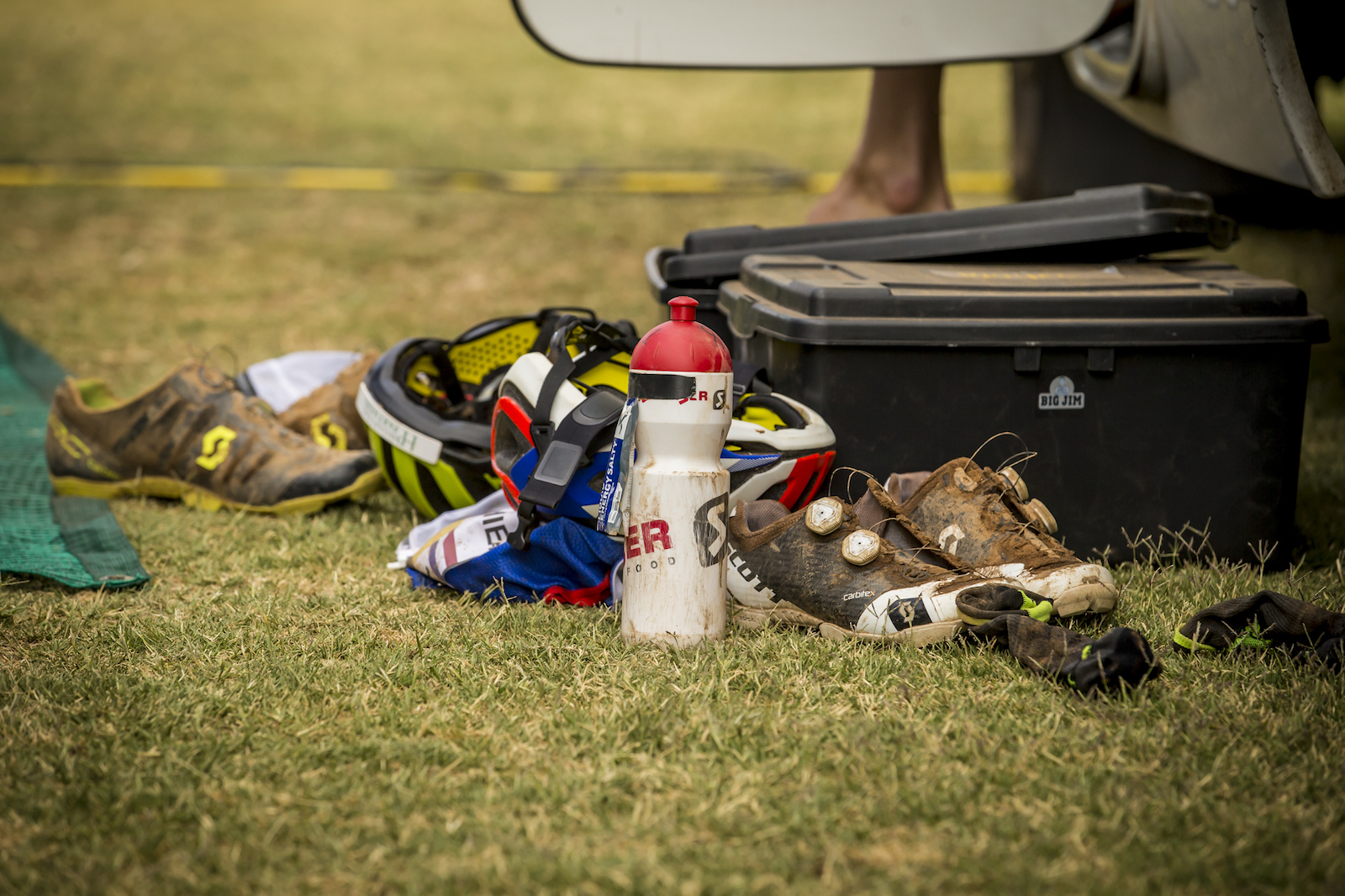
Mountain bike racing is most often a solo endeavor. Yeah, you’re around other racers and teammates, and there are fans and photographers and TV coverage, but you’re mostly alone. Not here. This is a stage race not all that different than those on the road. And, in a stage race, success of one teammate always adds a few watts of power to the rest. Unfortunately, bad luck and illness do the same thing in reverse.
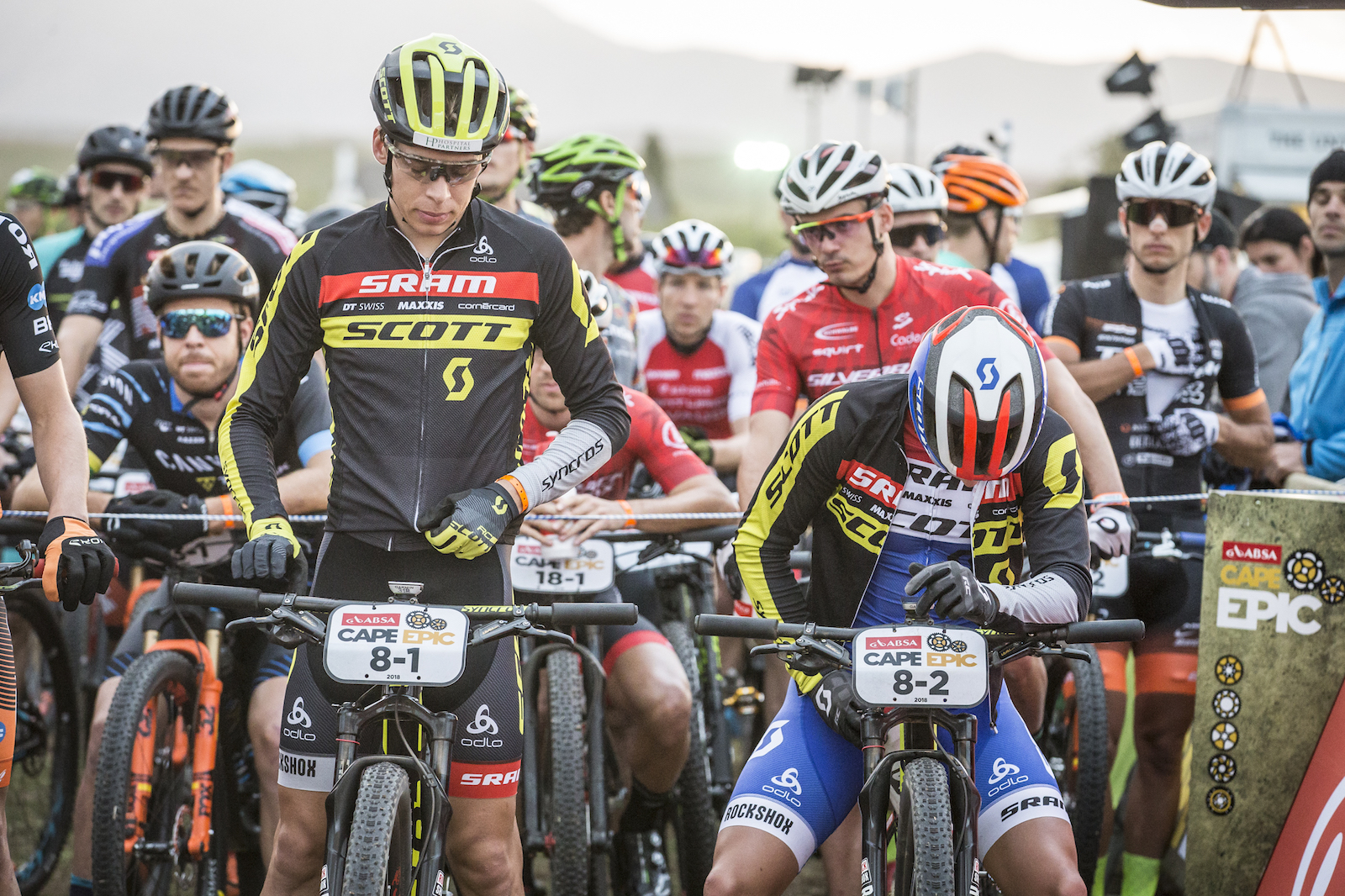
If you’re Andri, that means that the knee pain you have been doing your best to ignore for the good of the endeavor is now amplified with every pedal stroke. And that stage win — as nice as it looks on one’s palmares — seems impossible. And when you’re World Cup young and promising, an also-ran finish that potentially costs an entire season just isn’t worth the risk. So you pull off your race numbers and look toward the future.
Part 3 — Frischi
Imagine for a second that you own an Olympic Silver Medal, some rainbow jerseys, and a working vineyard whose rows of grapes are marked with your World Cup victories. You were one of the most popular riders of the golden age of cross-country mountain bike racing, one of your home country’s most celebrated cyclists, and you run a team that is arguably the most prolific in the history of the sport.

You’ve come to test your mettle once again in the South African heat and on its unforgiving terrain even though you don’t have to. You have quite literally nothing to prove. Sure, you’re a past champion at this event, and fans still cheer when the announcer calls your name at the start, but the fact that you’re here has nothing to do with where your name appears on the results list.

You started in the sport all those years ago because you thought it was cool. And you feel the same today. The normal mountain biker might think that all of those events of the past fade — but they don’t. The final lap of a World Cup race won 20-or-more years ago is just as vivid in the memory banks of Thomas Frischknecht as last year’s World Championship is for Nino Schurter.
You have nothing to prove. But that feeling of accomplishment, of prevailing over angry terrain no matter what, and racing toward a finish line…
It’s pretty special.
About the Cape Epic:
2108 marked the 15th edition of the event
Prologue Time Trial plus seven stages over eight days (March 18-25, Cape Town-Wellington, South Africa)
Total distance: 658 kilometers (409 miles)
Total climbing: 13,530 meters (44,390 feet)
Overall time for the Men’s Champions: 25 hours, 29 minutes, 48.9 seconds
Overall time for the Women’s Champions: 29 hours, 57 minutes, 6.5 seconds
Overall time for the Scott–SRAM Old Dudes Thomas Frischknecht and Urs Gerig: 30 hours, 10 minutes, 6.4 seconds[/I]
Video by: Mind Spark Cinema
Photos by: Adrian Marcoux
Words by: Joe Parkin

